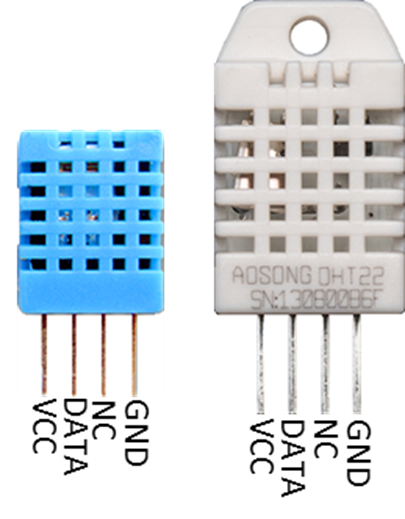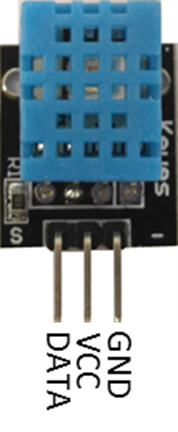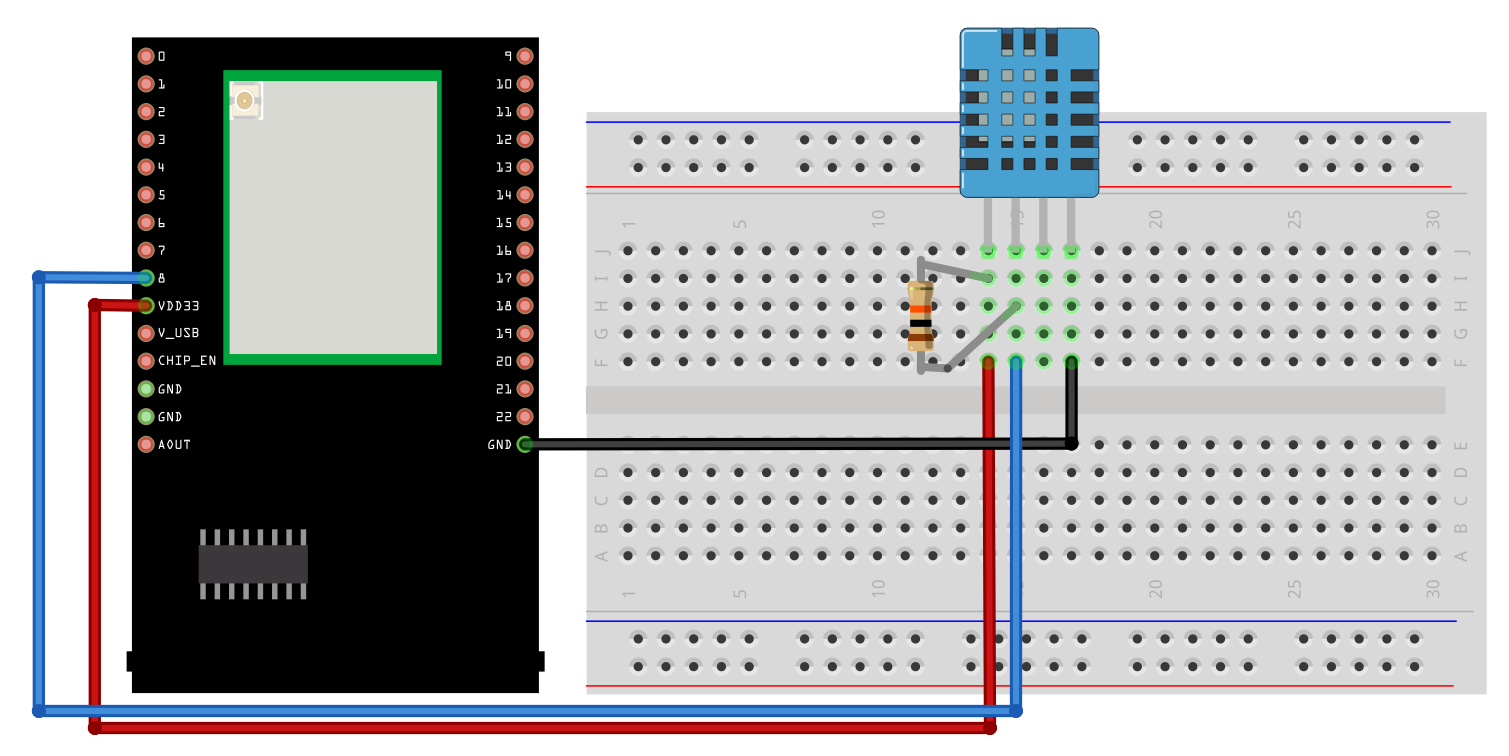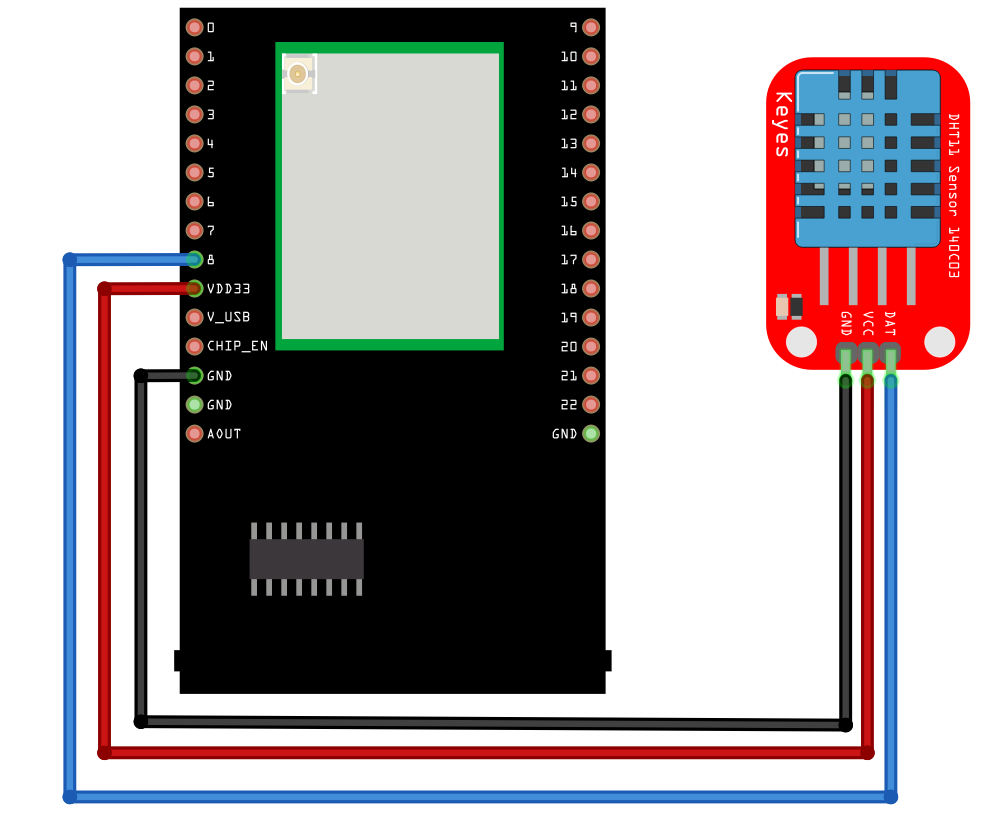Measure Temperature and Humidity DHT Tester
Materials
AMB82-mini x 1
DHT11 or DHT22 or DHT21
Example
DHT11 is a temperature and humidity sensor which operates at voltage 3.3V~5V. At room temperature, the measurable range of the humidity is 20% ~ 90%RH with ±5%RH precision, the measurable range of the temperature is 0 ~ 50℃ with ±2℃ precision.
Another choice of temperature and humidity sensor is DHT22 sensor, which has better precision. Its measurable range of the humidity is 0%~100%RH with ±5%RH precision, the measurable range of the temperature is -40~125 ℃ with ±0.2℃ precision.
There are 4 pins on the sensor:
Since one of the 4 pins has no function, there are temperature/humidity sensors with only 3 pins on the market:
DHT is normally in the sleeping mode. To get the temperature/humidity data, please follow the steps:
Awake DHT: Ameba toggles low its DATA pin of GPIO. Now the DATA pin of GPIO serves as digital out to Ameba.
DHT response: DHT also toggle low its DATA pin of GPIO. Now the DATA pin of GPIO serves as digital in for Ameba.
DHT sends data: DHT sends out the temperature/humidity data (which has size 5 bytes) in a bit by bit manner. To represent each bit, DHT first pull low the DATA GPIO pin for a while and then pull high. If the duration of high is smaller than low, it stands for bit 0. Otherwise it stands for bit 1.
Take note that if you are using a DHT sensor that is not mounted on a PCB, you will have to add in a 10K Ohm pull up resistor. You may refer to the wiring diagrams.
AMB82 wiring diagram: DHT sensor not mounted on a PCB board
DHT sensor mounted on a PCB board
Open the sample code in “Files” -> “Examples” -> “AmebaGPIO” -> “DHT_Tester”. Compile and upload to Ameba, then press the reset button. The result would be shown on the Serial Monitor.
Code Reference
Use dht.readHumidity() read the humidity value, and use dht.readTemperature() to read the temperature value.
Every time we read the temperature/humidity data, Ameba uses the buffered temperature/humidity data unless it found the data has expired (i.e., has not been updated for over 2 seconds). If the data is expired, Ameba issues a request to DHT to read the latest data.





